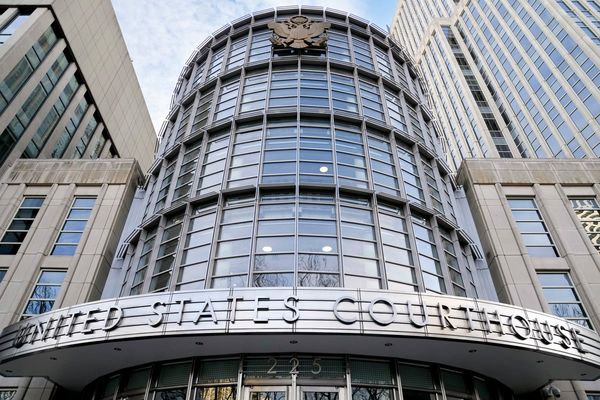
Some meat and vegetable lines at supermarkets have almost doubled in price over the past year, research has found, prompting fresh calls for the government to intervene as food industry figures gather for summit in Downing Street.
Annual inflation on supermarket own-label budget items stepped up to 25% in April, according to the data from consumer group Which?, while the rate of price increases on branded goods remained steady at just under 14%.
However, some individual items rose at a far faster pace. The price of a pack of Morliny frankfurters at Asda shot up from an average of £1.25 to £2.42, an increase of nearly 94% in a year, while a four-pack of brown onions at Morrisons went from 65p to £1.24 – a 91% rise.
The highest rate of inflation by category last month was on cheese and milk – both over 20% – while inflation eased slightly on both premium and regular supermarket own-brand items.
Sue Davies, the head of food policy at Which?, urged Rishi Sunak to ask grocery bosses gathering at No 10 on Tuesday to commit to doing more to hold prices down, “including stocking budget lines in convenience stores to ensure easy access to basic, affordable food ranges that support a healthy diet”.
The call comes after supermarkets in France agreed to cap prices on key food stuffs and the government gave support to producers amid hefty inflation over the Channel.
Supermarkets, farmers and food industry leaders are meeting the prime minister to discuss how to tackle food price inflation, which rose to 19% in March, according to official government figures.
Before the summit, agriculture and food lobby groups called for more access to overseas workers to help pick crops and better regulation of suppliers’ relations with supermarkets as well as help to adapt to cope with an anticipated rise in extreme weather conditions prompted by climate change.
The UK’s competition watchdog announced on Monday that it would look at whether a poorly functioning market was contributing to food price inflation, alongside a similar investigation into fuel prices.
Anna Taylor of the sustainable food lobby group the Food Foundation called on the government to reinstate its horticulture strategy, which was abandoned earlier this month, in order to secure supplies of fresh fruit and vegetables from the UK, as farmers both here and overseas face difficulties in growing crops in increasingly volatile conditions.
She also said the government should expand the Healthy Start voucher scheme, which ensured that low-income households could afford fresh produce.
“Climate shocks are going to be worsening as we go into the future, and we should be expecting food price inflation to be normal state of affairs. We need to be thinking seriously about how we cope with inflation better than we are now,” Taylor said.
Vicki Hird, head of farming at the Sustain alliance of farming, environmental and community groups, said the government was “failing to support farmers properly” amid a crisis in horticultural production caused by rising costs and lack of labour availability.
She said the government should extend the powers of the independent Groceries Code Adjudicator so that rules such as no automatic delisting of suppliers’ products could be legally enforced.
Fears about the UK’s food supplies have increased after supermarkets were forced to ration supplies of tomatoes, peppers and cucumbers in February owing to extreme weather interrupting supplies of salad and vegetable crops from southern Spain and north Africa.
UK supplies of salad crops have also been restricted by a cold, grey spring and a rise in the cost of energy that has prompted greenhouse growers to cut back on production.
Despite problems with supplies, the government ditched plans for a horticulture strategy, one the few recommendations it had agreed to take forward from a government-commissioned report by the founder of Leon restaurants, Henry Dimbleby.
Fears have arisen that large companies have used the cover of inflation to boost profits, with those on lowest income suffering the most.







